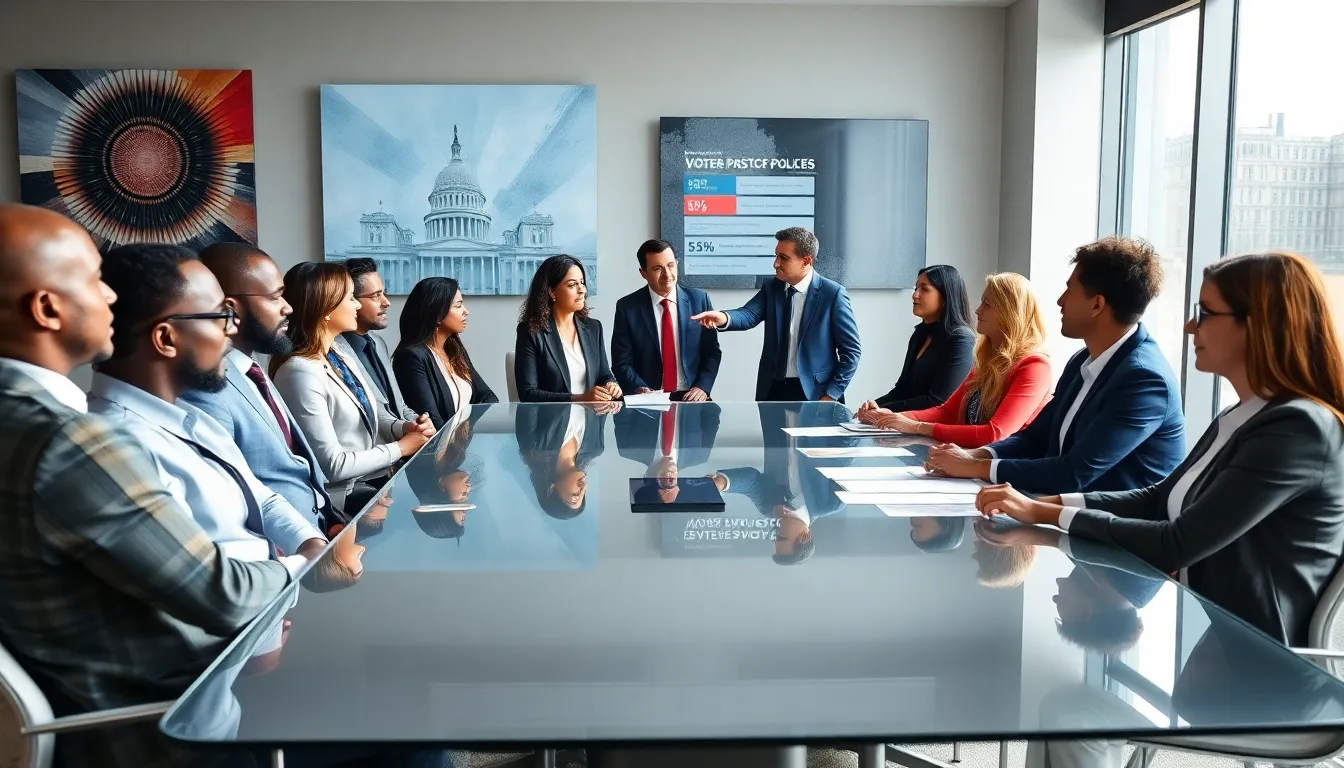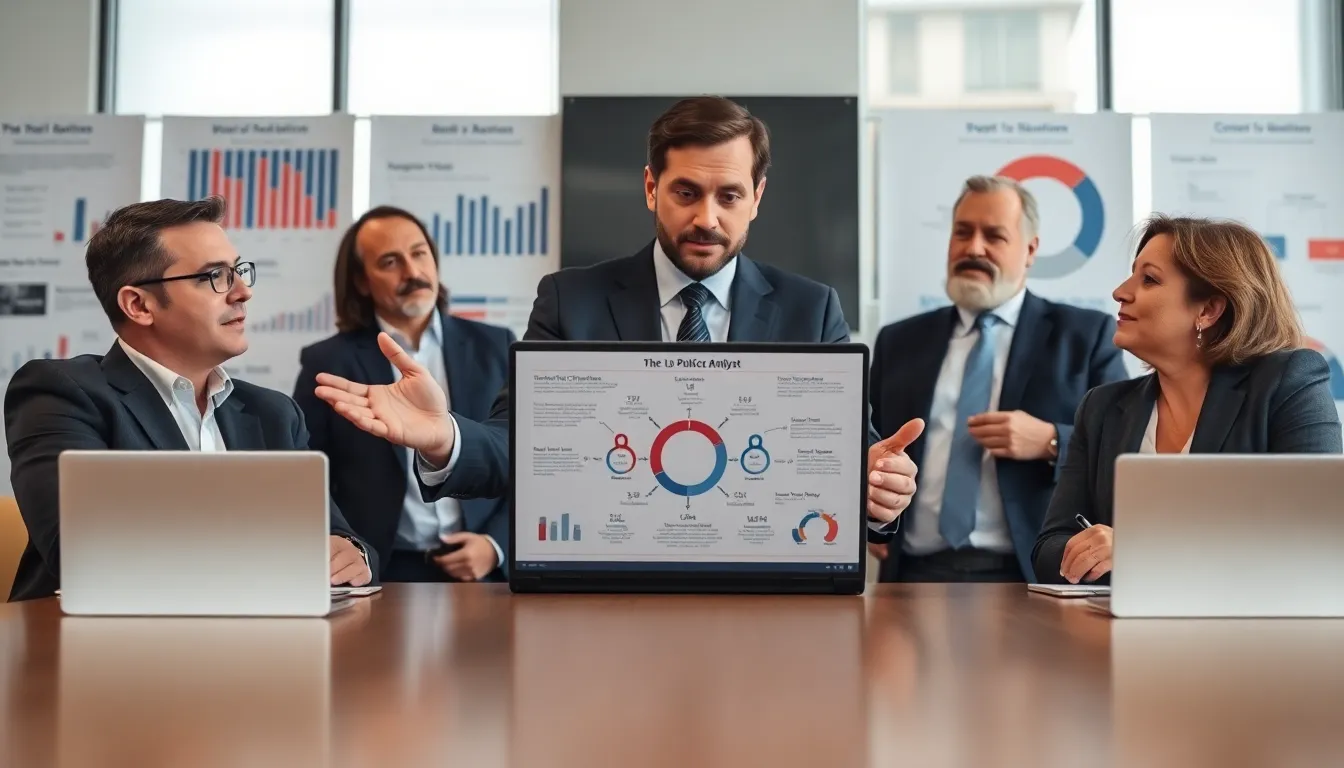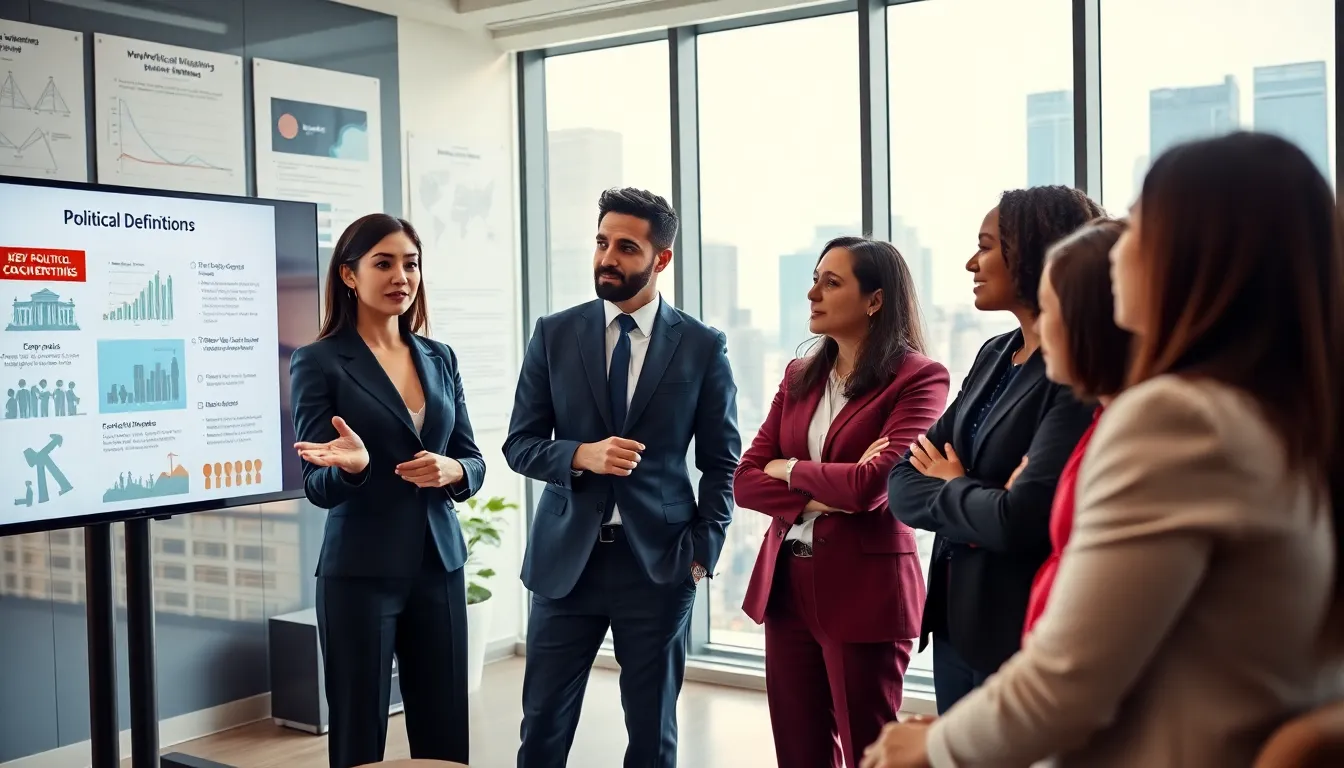Picture this: you’re at a family gathering and the topic of politics comes up. Suddenly, Uncle Joe is arguing about taxes, while Aunt Linda is praising her favorite candidate as if they’ve discovered the cure for boredom. What is it about politics that can both unite and divide? Politics isn’t just something that happens behind closed doors in the halls of government: it’s the life force of society. Let’s jump into what politics really means, why it’s crucial for society, and how it shapes our world.
Table of Contents
ToggleThe Importance of Politics in Society

Politics is essential in shaping the world around us. In essence, it’s the mechanism through which societies decide who gets what, when, and how. This is not just about elected officials making decisions: it’s about the process of making those decisions. Think about it: laws governing everything from employment and healthcare to education and the environment stem from political processes. When individuals engage in political discussions, they do more than express opinions: they contribute to the formation of policies that influence daily life. In a nutshell, politics helps maintain order within society, fosters community engagement, and promotes participation in governance, which eventually leads to a more informed and involved citizenry.
Branches of Politics
Understanding the branches of politics is essential for grasping how governance is structured. Typically, there are three main branches: executive, legislative, and judicial.
Executive Branch
The executive branch implements and enforces laws. This includes the President, governors, mayors, and other officials. Their role is to ensure that laws passed by the legislature are enforced.
Legislative Branch
Next, we have the legislative branch, which is responsible for creating laws. Generally composed of elected representatives, this branch comprises two houses, such as the Senate and House of Representatives in the U.S. Their job is to represent the interests of the populace.
Judicial Branch
Finally, the judicial branch, consisting of courts and judges, interprets laws and ensures they are upheld fairly. This branch checks the powers of the executive and legislative branches, safeguarding against abuse of power.
Key Theories and Ideologies in Politics
Politics isn’t just a mechanical process: it is deeply influenced by various theories and ideologies. From liberalism and conservatism to socialism and feminism, each ideology offers unique perspectives on governance and societal organization.
For instance, liberalism emphasizes individual rights and freedoms, encouraging personal choice in both social and economic spheres. In contrast, conservatism often values tradition and the stability it brings to society.
Socialism advocates for social ownership and democratic control of the means of production, while feminism focuses on equality and social justice, particularly about gender issues. Each theory shapes political discourse, influencing elections, policies, and societal norms.
Political Systems and Structures
Political systems are the frameworks through which political activity occurs. They can be broadly categorized, but some common structures include democracies, autocracies, and monarchies.
The Role of Political Parties
Political parties play a pivotal role in these systems. They organize elections, present candidates, and mobilize voters around specific platforms. From the Democratic and Republican parties in the U.S. to larger global parties like the Labour Party in the U.K., their influence is immense.
Elections and Voting Processes
Elections serve as the primary mechanism of democracy, allowing citizens to exercise their right to vote and influence their leaders. Different countries adopt varied electoral systems, such as first-past-the-post in the U.S. or proportional representation in many European nations, which significantly affect political outcomes.
Influence of Media and Public Opinion
In modern politics, the role of media cannot be overstated. Media acts as a conduit for information and shapes public opinion. With the rise of social media, information spreads faster than ever and can lead to significant shifts in societal attitudes.
Public opinion polls provide a snapshot of what citizens think about political issues, often influencing policymakers and political campaigns. Politicians may carefully craft their messages based on media coverage and public sentiment, which emphasizes the symbiotic relationship between politics and media.
Global Politics and International Relations
Politics doesn’t stop at national borders. Global politics involves interactions among nations, international organizations, and multinational corporations. International relations theories, such as realism and constructivism, help explain how states behave on the global stage.
For instance, realism focuses on the notion that states act in their own self-interest, often prioritizing power and security over ideational factors. On the other hand, constructivism emphasizes the role of social constructs in shaping state behavior, demonstrating that politics can be as much about perception and identity as it is about military might and economic power.
Challenges Facing Modern Politics
While politics is vital for societal function, it is also fraught with challenges. Issues such as polarization, misinformation, and the growing influence of money in politics complicate the political landscape. Polarization has led to a more divided electorate, while misinformation, often propagated by various media platforms, can skew public perception and create confusion. Besides, the influence of money, especially through political action committees and lobbying, raises questions about the integrity of political processes and whether they truly reflect the will of the people.





